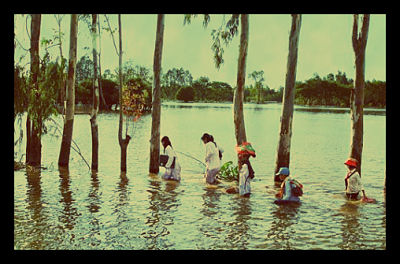World Bank Risk Management Helps Reduce Poverty

In its annual World Development Report on October 7, the World Bank stated that successful risk management can be an essential tool for development.
Risk management in development involves policies that can help improve the negative effects of natural disasters, economic shocks or health crises. The World Development Report suggests that poor risk management has resulted in a staggering child mortality rate from injury and illness in low-income countries, one that is nearly 20 times higher than that in high-income countries. These slacking policies have also led to more deaths during droughts in Africa than from any other natural disaster. However, if governments and decision-makers can create more durable environments for managing risks, these trends can indeed be reversed.
“Risk management can save lives, avert economic damages, and can provide resilience and prosperity by allowing people to undertake new endeavors,” said Norman Loayza, director of the 2014 World Development Report.
The World Development Report has been released annual since 1978 and is the World Bank’s most comprehensive publication. As inferred, this year’s report looked at how managing risks can end poverty and increase equity.
As of now, many societies and individuals fail to tackle risk successfully because of lack of resources and information, missing markets and public goods and even more, social exclusion. “We’re advocating a sea change in the way risk is managed,” World Bank President Jim Yong Kim said. “Our new approach calls for individuals and institutions to shift from being ‘crisis fighters’ to proactive and systematic risk managers.”
The report tells us that because most individuals remain ill-equipped to confront many shocks and disasters, they must instead depend on shared action and responsibility. Without coherence from the international community, individuals, states and nations will continually be unable to handle problematic events on their own terms.
– Sonia Aviv
Sources: Global Issues, World Bank, Topix
Photo: World Bank
